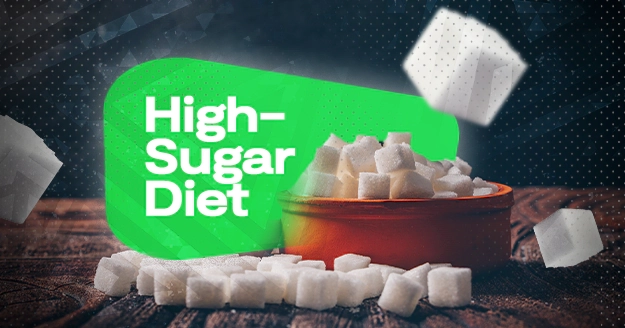What is the difference between added sugar and natural sugar?
Naturally occurring sugars are sugars not added to food but instead are found naturally in them. Naturally occurring sugar in fruit is called fructose, while in milk, it is called lactose. Is natural sugar bad for you? Actually, naturally occurring sugars are safe to eat.
Any type of sugar or caloric sweeteners that are added to foods or beverages during processing or preparation—for example, adding sugar to your coffee or your cereal—are considered added sugars. Natural sugars, including brown sugar, white sugar, and honey, as well as other caloric sweeteners produced artificially (such as high fructose corn syrup), can all be considered added sugars or added sweeteners.
Why is sugar bad for you?
Consuming excessive added sugar can have a number of detrimental health impacts. How bad is sugar for you? Well, in addition to other dangerous diseases, consuming too many sweetened foods and beverages can result in weight gain, elevated blood sugar, and heart issues.
9 Negative Effects of Bad Sugar
- Can Cause Weight Gain
A lot of factors might contribute to weight gain on a high-sugar diet. It causes your body to produce excess fat, is packed with nutrient-free empty calories, and fools your brain into wanting more of it.
- Increases Your Risk of Heart Complications
A study, which was published in the journal BMC Medicine, discovered that diets rich in free sugars, which include sugar added to processed foods items as well as sugar in fruit juice and syrups, increase a person’s risk of heart disease and stroke.
- Linked to Acne
Your entire body experiences inflammation when your blood sugar levels rise. Your body also produces more sebum, an oily material found in your skin, as a result of these surges. Acne can be brought on by both inflammation and too much sebum.
- Increases Your Risk of Type II Diabetes
Excess sugar that is not converted to energy is stored as fat. Weight gain and increased insulin resistance result from this. Numerous studies have revealed a roughly 25% increased risk of type 2 diabetes in persons who regularly consume sugar-sweetened drinks.
- Can Increase Your Risk of Cancer
Cancer is not brought on by moderate sugar consumption as part of a balanced diet. However, consuming too much sugar can result in obesity, which is a risk factor for cancer, or improper eating habits.
- May Increase Your Risk of Depression
Excessive sugar consumption leads to chemical abnormalities in the brain. These imbalances can cause sadness, and in some people, they may even raise their long-term risk of developing a mental health issue.
- May Accelerate the Skin Aging Process
Collagen and elastin, the building blocks of skin, give it its suppleness and softness. Collagen is cross-linked by sugar, which causes our skin to harden and lose its flexibility. Our skin deteriorates more when we consume more sugar.
- Drains Your Energy
There isn’t much fiber in food made with a lot of sugar or refined white wheat for your body to digest. This allows sugar to enter your blood circulation very quickly. You can experience a brief energy spike. But when your blood sugar levels return to normal, you could feel lethargic.
- Can Lead to Fatty Liver
Excess glucose in your blood turns into fat cells. And one of the places in our bodies that stores this excess fat is the liver. If this continues, liver cells are gradually replaced by fat cells, which can lead to non-alcoholic fatty liver disease (NAFLD).
Is there a recommended daily sugar intake?
The World Health Organization (WHO) suggests that both adults and children should reduce their sugar consumption to less than 10% of their total calorie intake per day. This is equivalent to around 12 teaspoons or 50g of sugar per day for an adult, on average.
How do I read a food label when it comes to sugar?
The Nutrition Facts label for foods and beverages that include added sugars will provide the grams and the percent Daily Value (%DV) for added sugars. When the phrase “includes” appears on the label before added sugars, it means that added sugars are counted as part of the product’s overall sugar content.
Can I eat sugar if I have diabetes?
Refined carbohydrates like added sugars are easily absorbed into the bloodstream by the body. Why sugar is bad? When a person has type II diabetes, their body’s insulin is unable to control the glucose that is released into the blood after eating or drinking. Too much sugar consumption can worsen diabetes after it has already developed.
People with diabetes can consume sweets and other sugary foods as part of a healthy diet or in conjunction with exercise. But it’s best to indulge yourself in sweets in moderation and as an occasional treat.
Should I avoid sugar altogether?
Did this article answer your question: why is sugar bad for you? We hope it did, but we also hope it didn’t scare you into trying even a small amount of sugar. A nutritious, balanced diet can include sugar. Instead of avoiding sugar altogether, many health professionals think it may be included in a balanced diet, and some even point out that it has advantages.










